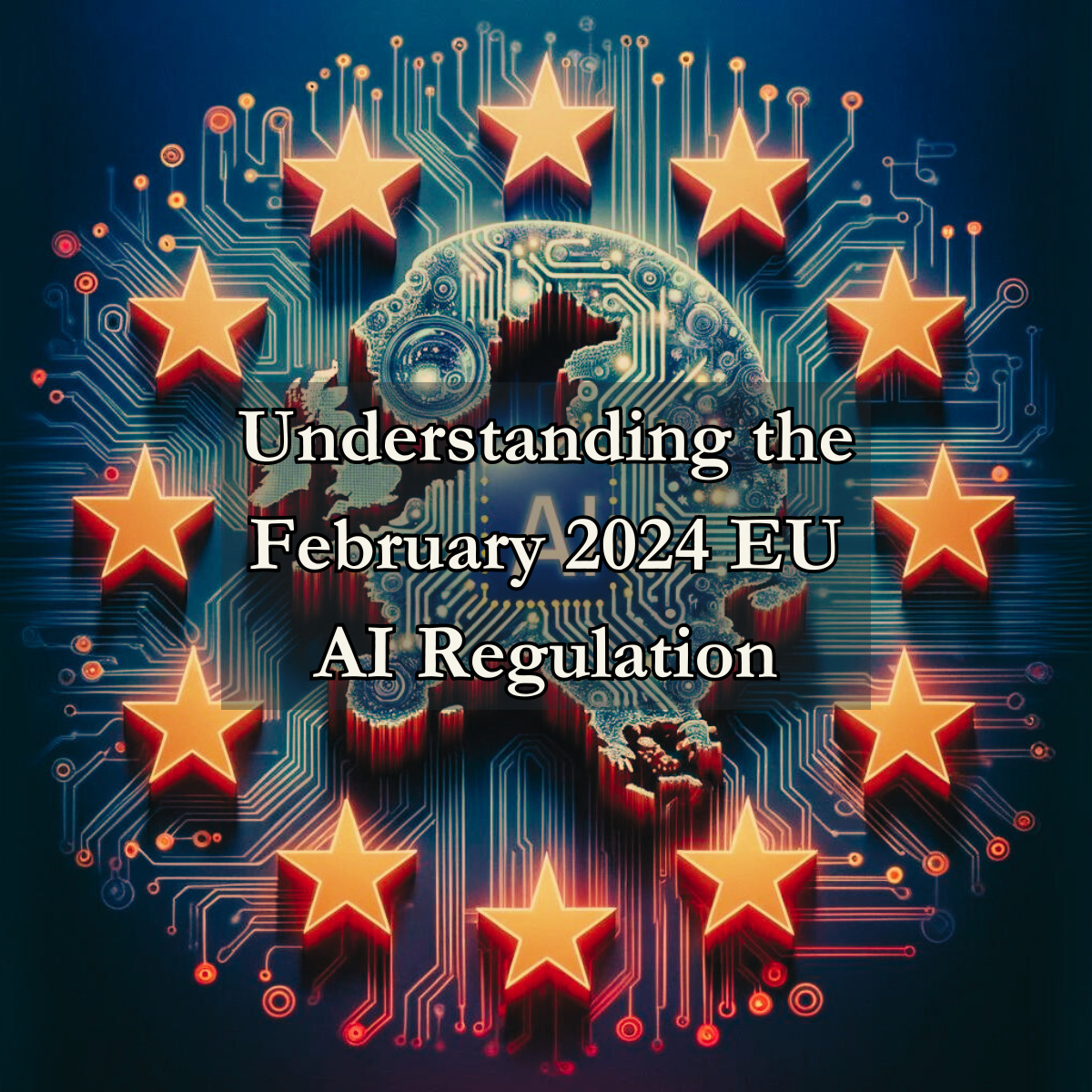Understanding the February 2024 EU AI Regulation

Understanding the February 2024 EU AI Regulation
Introduction
In February 2024, the European Union significantly advanced in digital governance by finalising the AI Act. This pioneering legislation is designed to ensure that AI technologies in the EU are developed and utilised in a manner that is safe, ethical, transparent, and under human oversight. The Act is a key part of the EU's broader digital strategy to promote excellence in AI while prioritising trust and safety.
Key Provisions of the AI Act
Risk-Based Approach: The AI Act adopts a risk-based framework, categorising AI systems according to the level of risk they pose. High-risk AI systems are subject to stringent compliance standards, including transparency, data governance, and human oversight.
EU AI Office: A notable feature of the Act is the establishment of the EU AI Office, which is tasked with overseeing the implementation of the Act and ensuring AI systems' compliance with regulations.
Obligations for AI Providers: Providers of AI systems are required to conduct risk assessments and adhere to ethical guidelines. The Act also bans certain AI practices deemed to pose unacceptable risks, such as those that manipulate human behaviour or exploit vulnerable groups.
Implications for Businesses and Society
The AI Act will have a significant impact on businesses operating within the EU, necessitating comprehensive audits of AI systems to ensure compliance. This could lead to substantial changes in how AI systems are designed, developed, and deployed.
For society, the Act promises enhanced protection from potential harms of AI technologies, fostering an environment where AI can benefit humanity whilst upholding ethical standards and individual freedoms.
Conclusion
The February 2024 EU AI Regulation marks a significant step in the regulation of artificial intelligence within the European Union. As this legislation moves towards implementation, it represents an important effort to govern a rapidly evolving technological field. The EU's approach, focusing on safety, ethical considerations, and transparency, aims to set a standard in the development and use of AI technologies.
This regulation could serve as a model for other regions and contribute to shaping global norms in AI governance. The effectiveness of this Act will depend on the engagement of various stakeholders, including businesses, technologists, and policymakers, in adapting to and upholding its principles





